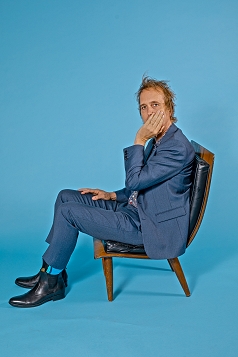Homemade Blood
You won’t find “homemade blood” in the dictionary, or in any lab manuals. But with the release of Chuck Prophet’s Homemade Blood, look for the term to show up in the next editions. “It was a song first,” explains Prophet. “I guess the words somehow floated to the top of the pool. I just like the way they sound, kinda plain. Plus at the same time, maybe something’s going on underneath. Life and people are like that anyway.”
Homemade Blood is Prophet’s fourth album, his first for Cooking Vinyl, which is issuing it simultaneously in Europe, where he enjoys a semi-respectable cult following, and in the US, where the tangled relationship with his former label kept his last record (Feast of Hearts) from being released Stateside.
It was recorded in ten whambam days last Fall at San Francisco’s venerable Toast Studios with producer Eric Westfall (Giant Sand, Sidewinders), and mixed at Ft. Apache by Boston-based console wizards Paul Kolderie and Sean Slade (Dinosaur Jr., Morphine, Hole, Radiohead) in an equally improb-able 72 hours. Hardly the prepackaged stuff of contemporary record making. But then, Prophet’s rarely gone with the conventional wisdom. Prophet says, “The only way I ever got anything done was to slip through the side door when nobody was looking. Right now I don’t have the patience for this whole ‘Orson Welles with a home video camera’ process that’s going on in pop music today. I’ve seen people drown in that process.” Applying that attitude to the making of Homemade Blood, Prophet cut it live: Warts, happy accidents and all. Capturing what he calls “those ‘conversational’ things” that find their way into music when people are playing together live and reacting to one another. “It takes a lot of work to set up live and get five musicians on tape simultaneously,” Prophet admits. “But recording is such an elusive thing anyway. It always comes back to capturing that energy and spirit in the room at that time, you know?”
As for Homemade Blood’s whirlwind mixing marathon, Kolderie and Slade were going through a stack of tapes when they came upon Prophet’s. After listening to it, they got on the phone. “‘How about we mix the record? When can Chuck fly out?’ is what they said to my manager,” recalls Prophet with a laugh, “so I flew out to Boston where we managed to fly well under the radar of normal industry demands. “I think I said to them, ‘Hey guys, we’ve only got three days to do this, but don’t let that keep you from breaking out your Buzzbin-voodoo-fairy dust!’”
The twelve songs on Homemade Blood all go to lyric or sonic extremes—usually both. From the infectious, swaggering kickoff, “Credit” (“Get your hands out of my pockets/ You’re not my Uncle Sam”); through the minor-key lovers’ apocalypse title track (“You’ve got seven scarlet veils/ I’ve got a hammer and I’ve got nails…Pretty soon I’ll be fallin’/ I can hear my own voice callin’/ Drowning in a sea of homemade blood”); to the half-time pulp spiritual, “The Parting Song,” that closes out the album (“Sailor won’t you take me to the shore now/ Let me drink my fill/ Lyin’ down it feels just like a chore now/ Dyin’ ain’t no big deal”); Prophet’s in the driver’s seat on ride after ride.
He takes you to musical terrain at once familiar and unsettling, haunting and haunted. Along the way, you encounter characters exiled to suburban gothic cul-de sacs crammed with condos, mini-malls, and flophouses, and souls trapped in the black vinyl grooves of Neil Young’s Tonight’s the Night attempting to serve up chunks of desperate wisdom and sodden humor. “Tonight’s The Night? I can only aspire to something like that,” confesses Prophet. “I came from a real nowhere place, and when events forced me back, I had to deal with all that boredom and creepiness that drove me away in the first place. I found myself bumping into a lot of ghosts out there. I guess those ghosts eventually found their way into the songs.” Having spent the better portion of two years collecting songs, Prophet had nearly 100 to choose from, (“Well, they weren’t all finished”) when it came time to record. “I wrote by myself, with my friend Kurt, some well-known misfits and even an unknown celebrity or two. Twelve songs found their way onto the album. The worst of the rest, I think I got rid of the cassettes as blanks at a garage sale.” During that time, Prophet and his band—Max Butler (guitars, mandolin, pedal steel), Anders Rundblad (bass), Paul Revelli (drums) and Stephanie Finch (keyboards, accordion, vocals)—also did hit and run tours of the US and Europe, resulting in the group telepathy that ultimately made the unique recording circumstances of Homemade Blood possible. “Kicking songs around onstage every night is like taking your kid out in the backyard every afternoon and hitting grounders to him,” is Prophet’s proud summary, who further brags that “this band is the best one I’ve ever had in any price range. So far I’ve kept them all merely with my charm school style and a batch of IOU’s I print up down at Kinko’s.”
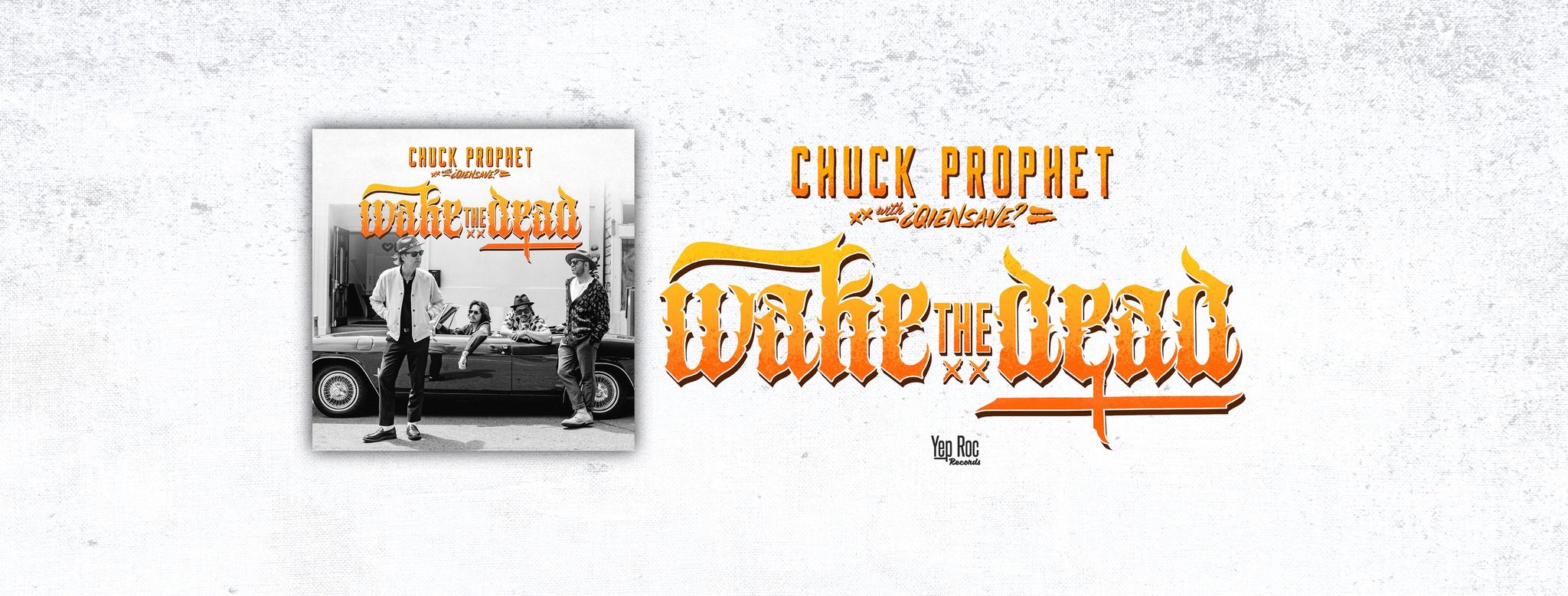

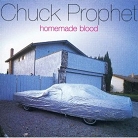



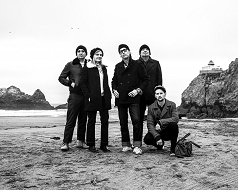
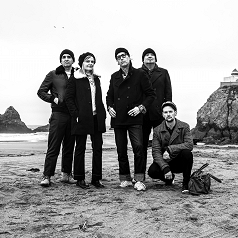
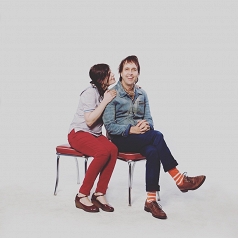
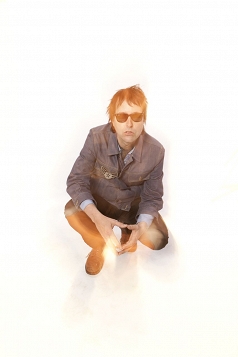
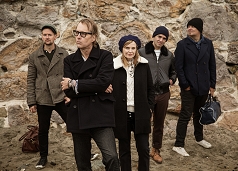
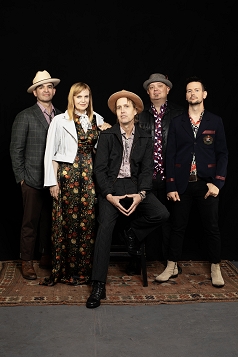
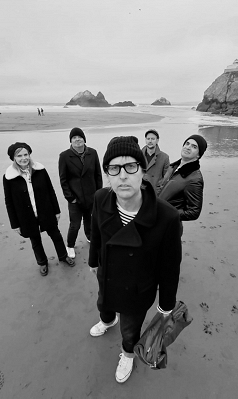
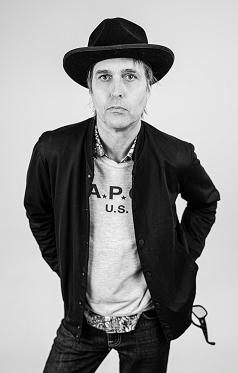
3_238_159auto_s_c1.jpeg)
